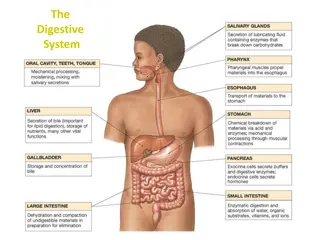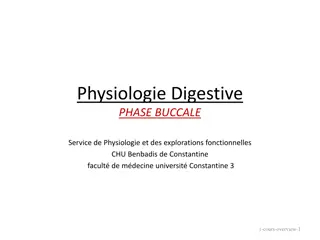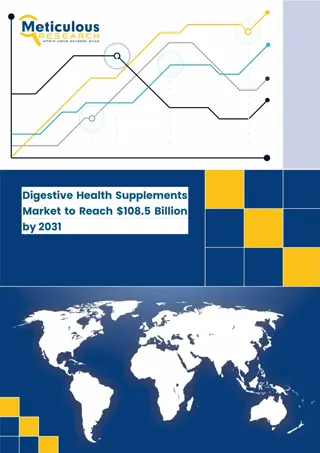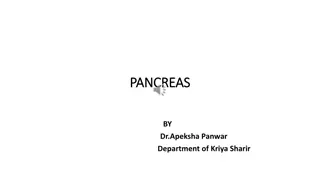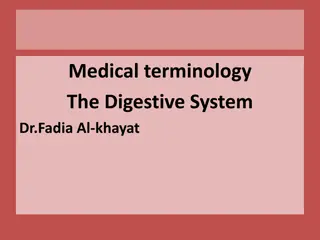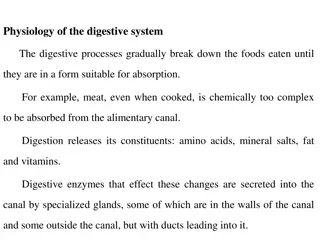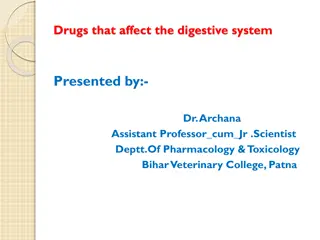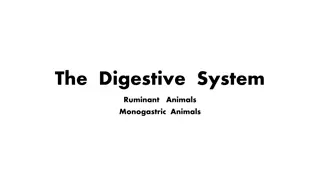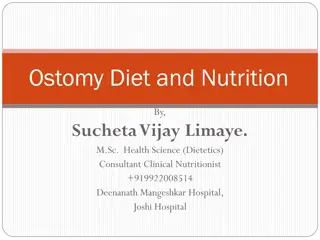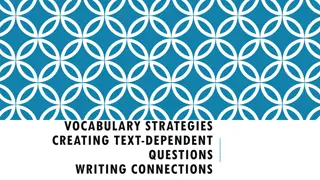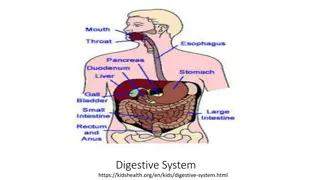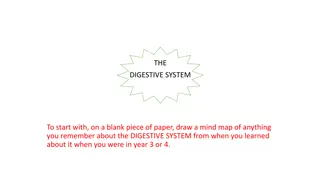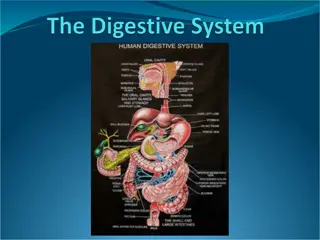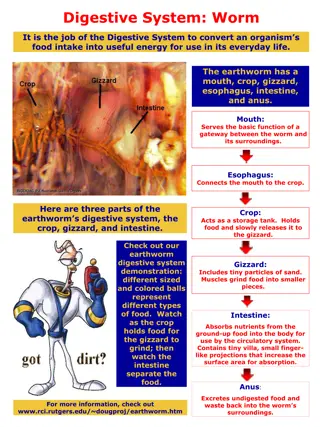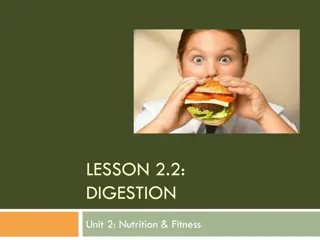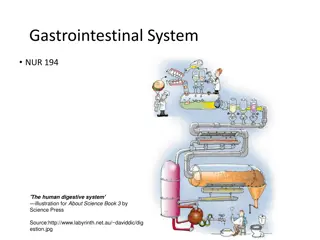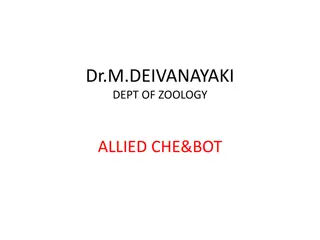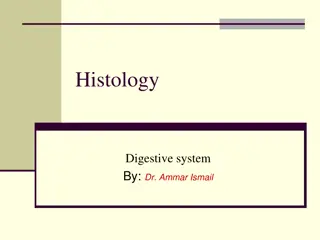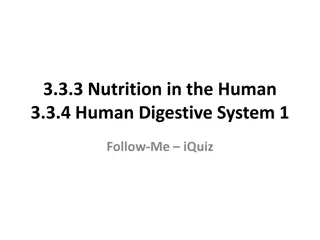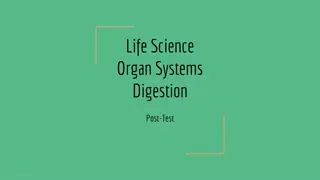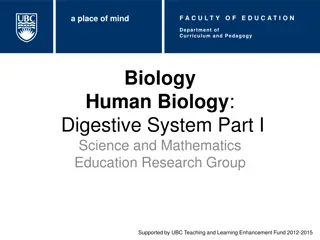The Digestive System: Essential Vocabulary and Concepts
Dive into the intricate workings of the digestive system with this comprehensive collection of essential vocabulary. Explore key terms such as absorb, acid, anus, bacteria, bile, and more to enhance your knowledge and understanding. Engage in hands-on activities and visual aids to reinforce learning and grasp the fundamentals of digestion effectively.
Download Presentation

Please find below an Image/Link to download the presentation.
The content on the website is provided AS IS for your information and personal use only. It may not be sold, licensed, or shared on other websites without obtaining consent from the author.If you encounter any issues during the download, it is possible that the publisher has removed the file from their server.
You are allowed to download the files provided on this website for personal or commercial use, subject to the condition that they are used lawfully. All files are the property of their respective owners.
The content on the website is provided AS IS for your information and personal use only. It may not be sold, licensed, or shared on other websites without obtaining consent from the author.
E N D
Presentation Transcript
Digestive System
Vocabulary Display Slips Teach, Print, Cut, Display, Refer, Learn, Embed The following words have been chosen as essential vocabulary for this topic. Pupils need to be AWARE that this vocabulary exists. Introduce it Pupils must UNDERSTAND what each piece of vocabulary means. Teach it Pupils must SEE the vocabulary in action spoken and written. Model it Pupils can then APPLY the vocabulary in written and oral activities. Praise it Displaying vocabulary effectively within the classroom will support all pupils with learning.
Digestive System Word Mat absorb energy molecules salivary glands acid enzymes mouth secrete anus excrete mucus small intestines bacteria fibre nutrients stomach bile food oesophagus stool bladder function organ swallow chemicals gums pancreas teeth chewing large intestines process urine corrosive liver rectum wash digest metabolism saliva waste
absorb To soak up or take in nutrients gradually. acid A chemical substance. which is a liquid, found in the stomach,
anus The hole where faeces leave the body. bacteria Small organisms that can cause disease.
bile A liquid produced in your liver that helps to digest fat. bladder The part of your body where urine is stored.
chemicals Produced in the process of chemistry. chewing Tearing food between your teeth to make it easier to swallow.
corrosive A chemical action that destroys something gradually. digest When food passes through the body to your stomach to then take the substances your body needs.
energy The amount of power from a physical or chemical resource in order to do something. enzymes A complex chemical produced by living cells.
excrete To get rid of waste generated during metabolism. fibre Parts of plants or seeds found in food not digested by the body but important for good health.
food What humans and animals eat. function The role that something or someone is suited for.
gums The flesh inside your mouth at the bottom of your teeth. large intestines Lower part of the intestines that absorbs water from food and forms solid waste.
liver An organ that cleans the blood, stores energy, makes bile and digests fat for the body. metabolism The process in which food is changed into energy.
molecules The smallest amount of a chemical substance. mouth An opening in the face where you eat, breathe and speak.
mucus A thick liquid produced in some parts of the body. nutrients Content in food that helps someone live and grow.
oesophagus A tube that moves food from the mouth to the stomach. organ A part of the body that has a specific function.
pancreas An organ that produces substances to help digest food. process A series of actions that lead to a change or development.
rectum Connected to the anus where waste food passes out of our body. saliva A clear liquid in the mouth that helps us to chew and digest our food.
salivary glands Glands that produce saliva in your mouth. secrete To produce something such as a human creating liquid.
small intestines An organ that digests food which connects the stomach and large intestine. stomach The organ that begins to digest the food once it has been swallowed.
stool Solid waste that is passed out of person s body through their bowels. swallow Process of moving food from the mouth to the stomach.
teeth Hard, white objects that grow in your mouth and are used for biting and chewing. urine A substance made by your kidneys that you get rid of when you go to the toilet.
wash To clean, usually by using water or soap. waste Material from the body after food has been digested.


